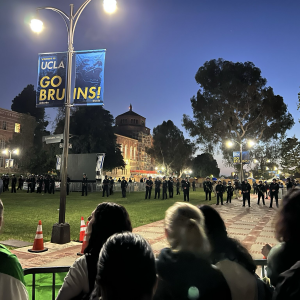 View Winners →
View Winners → Seek & Destroy: FAQs on Divorce, Revenge Porn, and Social Media Slamming
By Don Schweitzer
Nosey friends who are snooping to get the latest gossip aren’t the only concern divorcees have to worry about in these modern times. Social media slamming and even the distribution of intimate photos and videos have been tools ex-spouses have used to seek revenge.
But revenge seekers beware. Family Law Courts are not treading lightly on evidence such as text messages, screen shots of Facebook pages, and especially the distribution of intimate photos or videos of the couple. In January, the “Revenge Porn” law was amended in California to include that prosecutors no longer have to prove intent when pursuing against the unlawful distribution of intimate images. This is great news for a spouse worried about the archives stored in a once-shared computer hard drive, but the questions most divorcees want to know are:
Don’t I have ownership of photos and videos since I’m in them?
There is no specific code or case law that presently speaks on the property rights of photographs or videos. The California family code has no provision mandating that a court order of intimate photos be turned over to other party. If it gives you piece of mind to have copies of the images, then it is doable, but to seek sole ownership would be at the discretion of the court to award it.
What if I delete the ‘evidence’ prior to filing for divorce?
Don’t do it! Photos and videos are treated as “property” in a divorce case, so intentional removal, destruction, or manipulation of any and all property is a violation. As embarrassing as the topic may be, your best protection is to talk with your lawyer about the photos and videos, and elaborate on any concerns or intent involving your ex-spouse.
What rights do I have if I want my ex to remove photos of our children and myself?
The Family Courts have limited discretion when parties disagree about the type of content one party is posting on social media. Generally speaking, it’s best for both parties to keep their profiles “private” and adhere to the guidelines and tips on how to keep your children safe on social media. The Family Court would only be concerned if the photos posted to an account were detrimental to the health and safety of the child otherwise, freedom of speech rules.
I heard my ex is calling me names and airing our dirty laundry as his status updates on social media. Can he do that?
Typically a family court will not issue an order for removal of the social slamming; however, the family court will take into consideration any and all copies of text messages, Facebook screenshots, tweets and the like when evaluating child custody requests. So while the court can’t tell you what not to post, I strongly advise to play nicely because any information leaked can be used against you.
The fact is any type of intent of emotional distress or harassment will be considered during a divorce process. Berating or speaking negatively about your soon-to-be ex—whether it is in person, online or via phone or text message—is still considered evidence. And how you react is also duly noted. My advice for all clients when a new emotional stone is turned is to walk away, call your lawyer, then react together. This allows for the best, legally sound outcome in your favor.
Don Schweitzer is founder and partner of The Law Offices of Donald P. Schweitzer, based in Pasadena, Calif. As a Certified Family Law Specialist and former District Attorney, he has extensive background in domestic violence, divorce and child custody issues. Prior to becoming an attorney, Mr. Schweitzer was a Police Officer for approximately 10 years. As a faculty instructor at the National Business Institute, Schweitzer teaches continuing legal education classes on the topic of ethics and advanced courses on family law. He is an active member of the Pasadena Bar Association, the Los Angeles County Bar Association, American Bar Association, and the California State Bar; and a recent contributor to Los Angeles Lawyer.











































































































